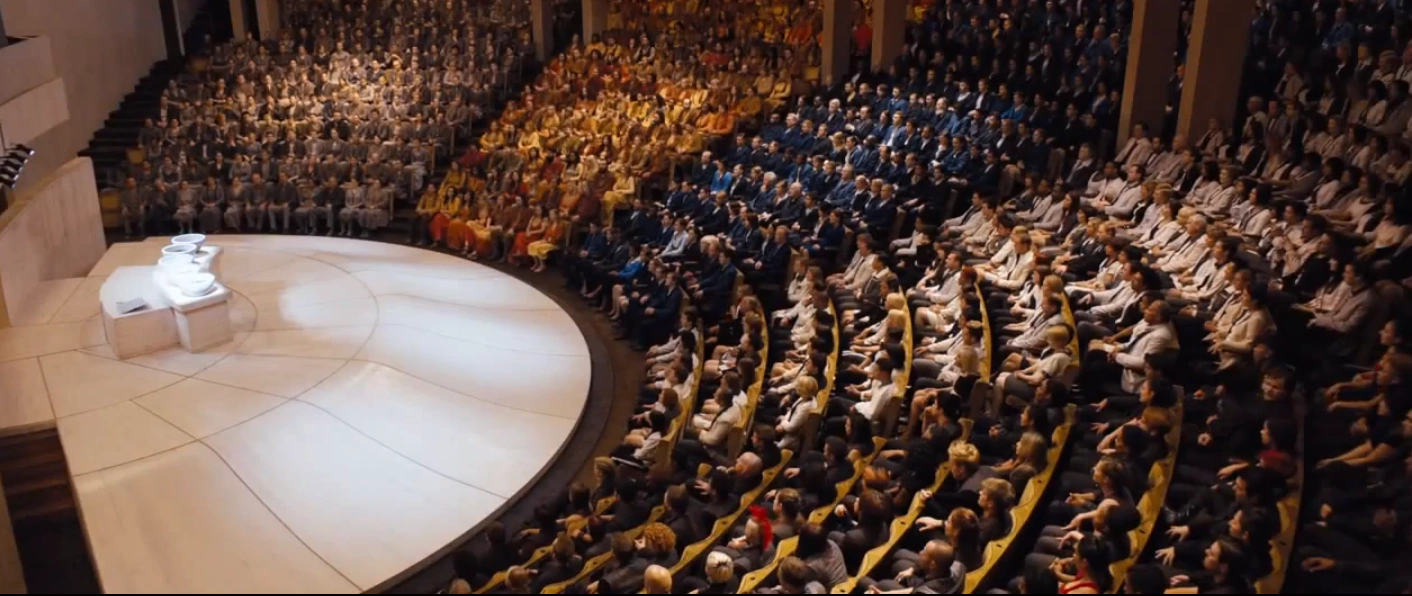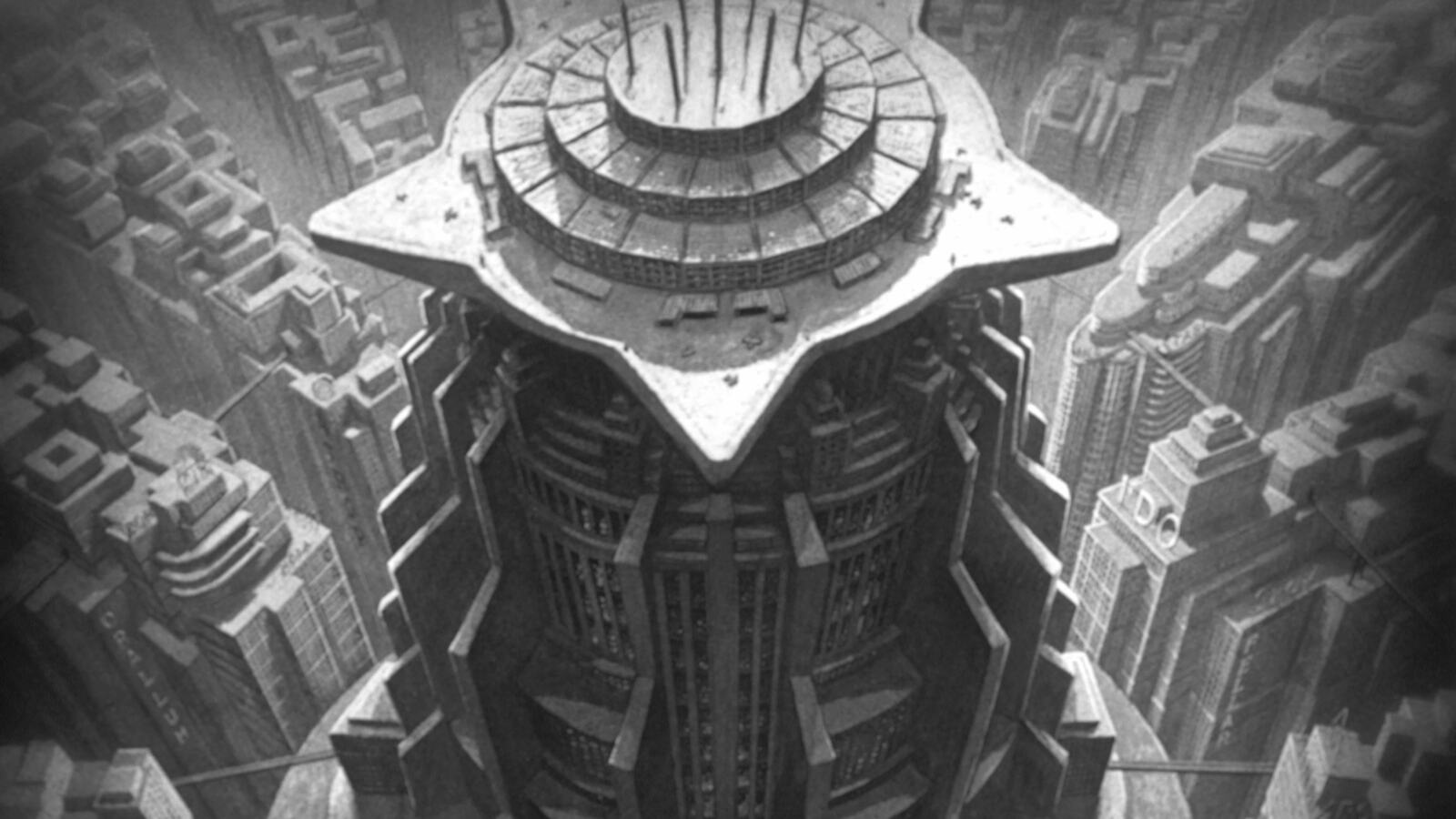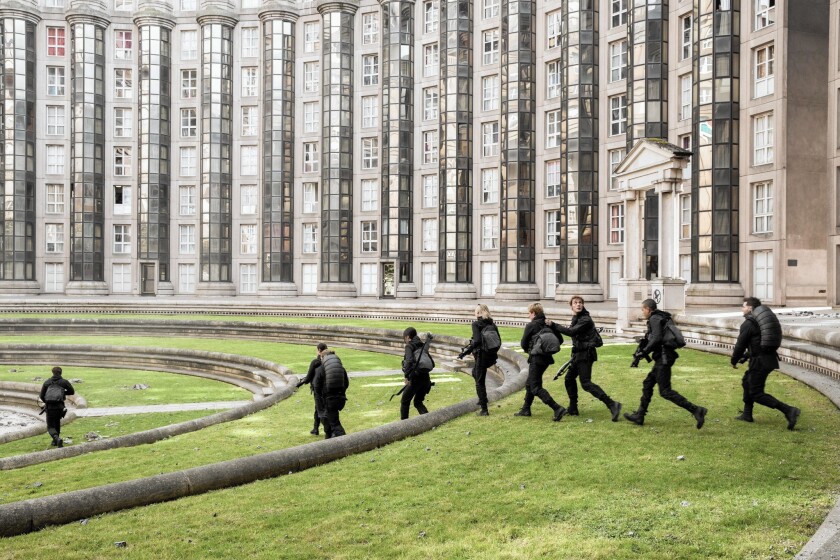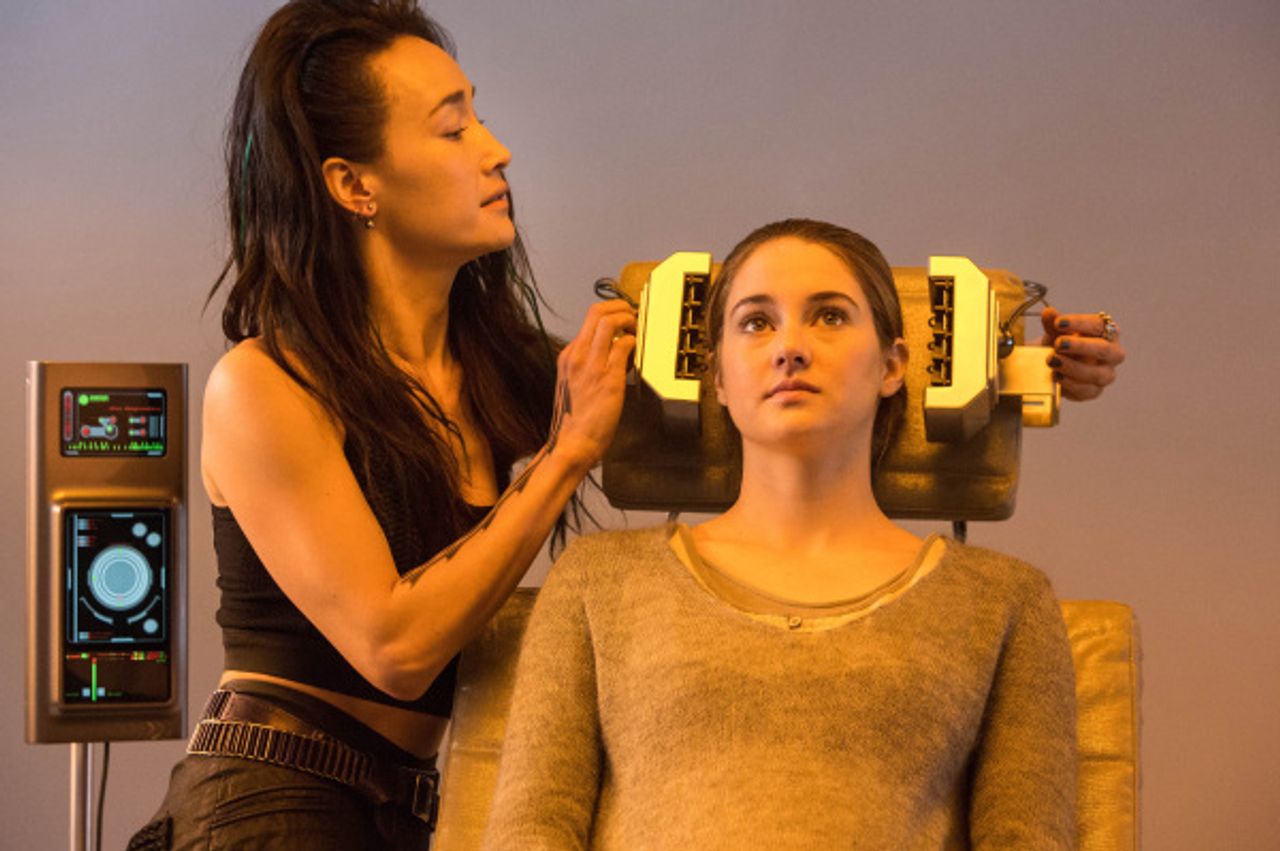The Influence Of Fritz Lang's 'Metropolis'

Commentator Roger Ebert states that Metropolis (1927) 'fixed for the rest of the century the image of the futuristic city as a hell of scientific progress and human despair' where 'science and industry will become weapons of demagogues.' Metropolis' clear influence on the image of a futuristic city (and the corrupt morality behind the spectacle of the city's powerful aesthetics) is weaved through modern science-fiction and dystopian films including Ridley Scott's Blade Runner (1982), Gary Ross' The Hunger Games (2012) and Neil Burger's Divergent (2014).
Released in 1982, Ridley Scott's thrilling, wildly intense Blade Runner includes countless themes and images first seen in Metropolis. The visually spectacular film follows Harrison Ford as Rick Deckard, a 21st-century, Los Angeles detective who hunts for fugitive, murderous replicants, meanwhile being drawn to a mysterious woman whose secrets may undermine his own soul. The narrative explores a future where society finds itself dependant on impressive technologies, however these are becoming soured by a backdrop of urban and social decay.
The clear presence of industry in the film, portrayed in the opening sequence of the city through the seemingly uncontrolled flames bursting from sky-scrapers, parallels the constant presence of industry in Metropolis. In the Lang's film the workers march mechanically, almost forgotten by spectators as they are placed towards the edges of frames and move in such choreographed motions they seem to become part of the architecture of the city and are utterly dehumanised. Scott has removed the 'human element' to depict industry entirely, conveying to spectators the complete dominance of technology over human life. For spectators of Blade Runner industry is intense and perhaps destructive (perhaps foreshadowing future violence), due to the merciless connotations of fire, whereas for those viewing Metropolis, the portrayal of industry is more concerned with the malicious oppression of the workers. Yet the presence of industry as both destructive and oppression is present in both films. However Scott has included some form of human life in the contrasting shot of a human eye opposing bold shots of the intimidating city, introducing the later conflict between the urban and the human, an opposition somewhat seen in Metropolis in the opening introduction of the workers where parallel shots of machinery and the workers are used to construct them as inhuman, habitual beings lacking personality.
The use of spectacle is additionally present in both films, echoes of the iconic shots of the city in Metropolis are seen within a powerful sequence of the city in Blade Runner. Huge scale and a sense of immense spectacle dominate both sequences, intimidating and awe-inspiring spectators equally with visuals of huge buildings, airways in the sky and beams of intense light. Both sequences furthermore feel impersonal, they focus more on being observational, perhaps an atmosphere created through the lack of humanity in both sequences.
Gary Ross' The Hunger Games (2012) is a second example of Metropolis' future influence. The film perfectly captures the dramatic violence, ambitious scope and raw emotion of the novel it is sourced.
Every year in the dystopia of what was once North America, the evil Capitol of the nation of Panem forces each of its twelve districts to send one girl and boy to compete in the Hunger Games as a twisted punishment for a past uprising. Much like Metropolis, The Hunger Games explores themes of class, corrupt leaders and the sustaining power of love.
Additionally, similarly to Metropolis science and technology are used as weapons against lower classes and are used to oppress people seen most profoundly in the games themselves where complicated technologies are used to control tributes as they attempt to essentially murder one another and emerge victorious as 'the last man standing'. The control room of the games expresses most clearly the use of modern, high-technologies that have been developed inside the dystopia and can be used to not only manipulate those inside the arena, but those viewing at home as they hope for their district tribute to somehow survive the harrowing, brutal games. In Metropolis the sense of urgency around maintaining the machinery in 'the depths', keeping it going and functioning well, controls the populations/workers in a similar way. Meanwhile both films use screens (a motif in The Hunger Games) to constantly emphasise to viewer the surveillance (and propaganda) indoctrinating populations.
Lastly, Neil Burger's Divergent (2014) is set in a dystopian Chicago where people are divided into distinct factions based on human virtues. Protagonist Tris Prior is warned she is Divergent and will never fit into any one faction, instantly becoming a target for high-powered leaders who seek to destroy the individuality of Divergent's who supposedly pose a threat to the oppressive system, perhaps just as Freder's willingness to close the divide between classes threatens the strict class system seen in Metropolis.
The immense scale and spectacle of the crumbling dystopian city, partially overtaken by nature and an eerie ghost of the past, was perhaps visually inspired by the grand establishing shots of the city in Metropolis. In both films light is used to draw the spectator through the intimidating landscapes, pulling them in Metropolis to the Tower Of Babel, and in Divergent to the natural sunlight beyond the city, perhaps suggesting a return to nature over the man-made is needed. However unlike Metropolis, Divergent bring spectators into the city, the city becomes less impersonal and observational, as spectators we are invited into it's hectic streets, we sit on the clunky, high-speed trains and run through the regimented streets alongside protagonist Tris. This perhaps ensures the city is less dominating and intimidating than that of Metropolis.
The use of scientific progress as a weapon of control by a higher, corrupt power is a key theme in Divergent that parallels Metropolis. The analysis of the human mind (seen above) to determine which 'faction' to place individuals in is invasive and frightening for spectators who fear having their very thoughts penetrated by a controlling, higher power which seeks to control them. The invasion of the mind is not as explicitly present in Metropolis however the idea of self-policing and a oppressive mentality is present, Divergent has perhaps just taken a slightly different approach to the classic dystopian theme. The invasion of the mind in Divergent aims to categorise people into strict factions (seen below) is perhaps relatively similar to the class system in Metropolis. Although the privilege of each faction is relatively similar, they must not 'mingle' between factions or deviate from the roles they should fulfil in each faction, much like how in Metropolis Freder ideally should not be communicating with the lower classes and should maintain his role as an upper class citizen. Moreover despite the difference that Metropolis separates by class and Divergent by human virtues, the system of oppression and division is both is especially similar.











Great post, thanks for sharing!
ReplyDelete